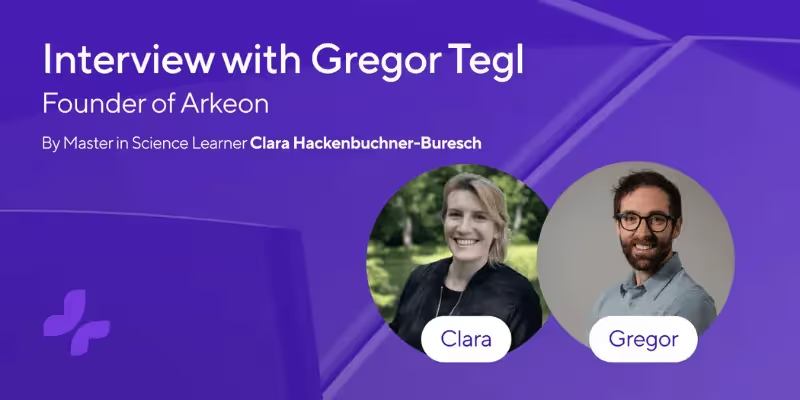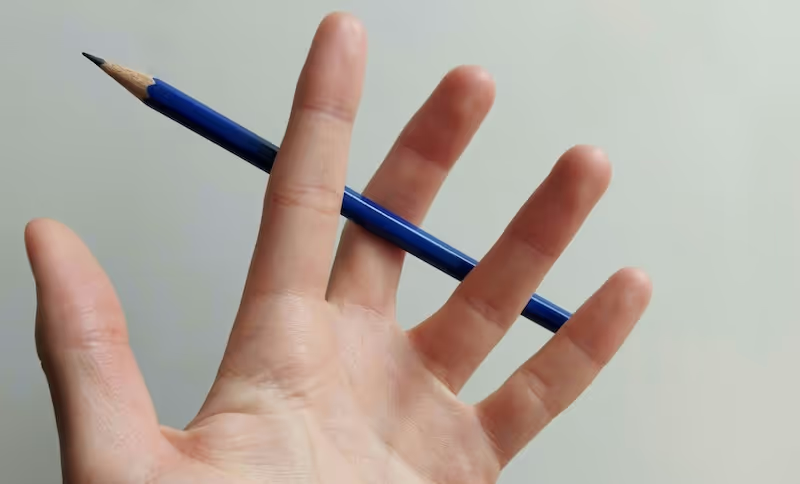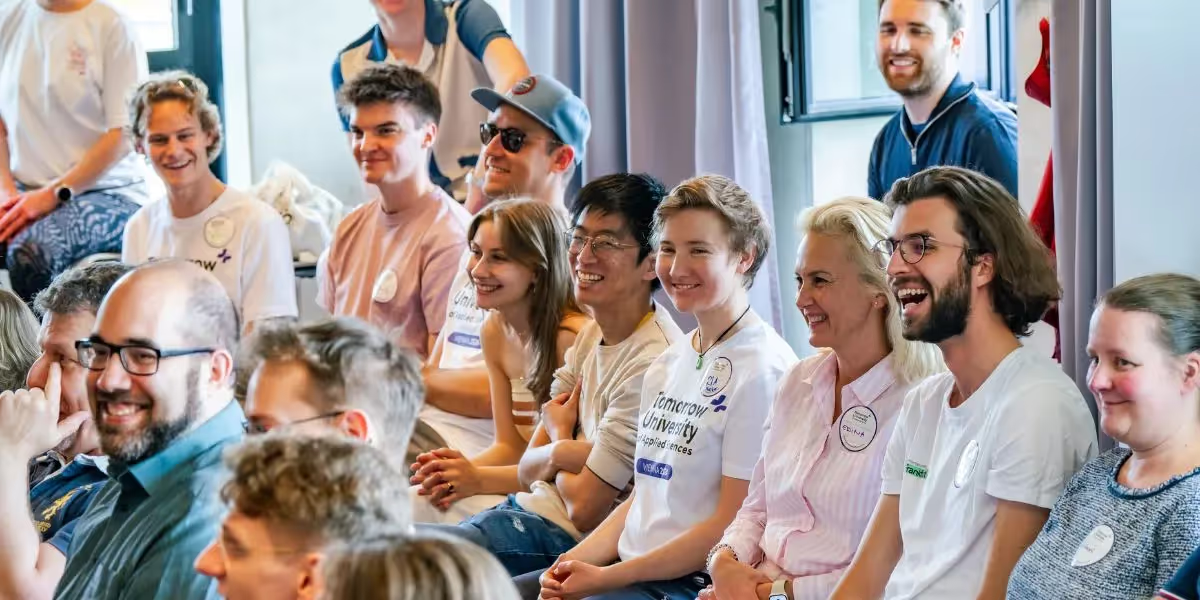Innovation, Systems, and Change: Insights from Gregor Tegl
Innovation isn’t just about tools—it’s about how we think. In this interview with Gregor Tegl, we explore systems change, education’s role in sustainability, and why curiosity may be the most powerful skill of all. Why Flexibility Is the Future of Learning

Reflecting on My Dialogue with Gregor Tegl, Founder of Arkeon
This blog article offers a summarized version of my original interview with Gregor Tegl. When crafting the original piece, I worked amid the backdrop of "Mickey's Christmas" music, a nod to my one-year-old daughter's entertainment. Although I don't consider myself a journalist by any stretch, I've decided to take a realistic yet doable approach to this piece, venturing into the unfamiliar territory of personal blog-style writing.
On December 7th, I had the chance to sit down for coffee with Gregor Tegl, one of the founders of Arkeon Biotechnologies, in their stylish Viennese Altbau office. Our conversation, filled with insights into entrepreneurship and sustainability, led me to be inspired and motivated to share these learnings and the story behind Arkeon.
Gregor Tegl's path from scientist and culinary enthusiast to the founder of a biotech innovation hub is a narrative of passion fused with purpose. His early fascination for cooking laid the foundation for his future pursuits in biotechnology, driving him to explore sustainable food production. This journey, marked by a deep commitment to environmental sustainability and the aim to change food production in an innovative way, culminates in the founding of Arkeon.
Arkeon isn't just a company; it's a mission to revolutionize the food industry. Gregor, along with his visionary team comprising CSO Simon Rittman and business co-founder and president Michael Mitsakos, have pioneered a breakthrough in sustainable food production. Arkeon leverages CO2 gas fermentation in a groundbreaking way, transforming waste carbon dioxide from industry via CCU into functional, climate-positive ingredients for food. Their method, using archaea microbes for natural fermentation to produce amino acids, marks a significant stride in sustainable food production. The goals go beyond just producing food. It embodies a commitment to a more ethical and climate-resilient food system, free from traditional agriculture's constraints. Their innovative method offers a solution to the global food crisis and presents a novel way to mitigate carbon emissions by decarbonizing heavy industry.
Resilience, Leadership, and the Human Side of Entrepreneurship
Gregor's innovative spirit is not just confined to Arkeon's technological advances. He carries a unique philosophy that business should not only be profitable but also fundamentally beneficial to society and the environment. This philosophy shapes every decision at Arkeon, from research and development to partnerships and community engagement.
Throughout our conversation, Gregor emphasized self-awareness, resilience, and an inclusive mindset, highlighting the importance of balancing professional rigor with personal well-being. This holistic approach to entrepreneurship resonates deeply with those striving for balanced success.
A key aspect of Gregor's leadership is his emphasis on team diversity and collaboration. He believes in harnessing the power of different perspectives to drive innovation. This belief is evident in the interdisciplinary nature of the Arkeon team, combining expertise in biotechnology, engineering, and business to create a cohesive and dynamic work environment. During setbacks, the team's energy and passion are also clear and immensely important motivators to keep going, maintain stamina, and support each other collectively.
"Bring it on" is a credo that strongly defines his lifestyle. Typically, expectations and categorization of events form the basis for dealing with them. Categorizing setbacks as mistakes or learning opportunities, or simply recognizing that things didn't go as planned and continuing towards the goal despite setbacks, is key.
“Understanding the insignificance of the individual has been helpful. Being completely emotionally affected by a setback can ruin the whole day. Understanding that it's a normal part of life makes it much easier.”
Gregor's approach to mistakes is not overly euphoric, as he held, but realistic and a normal part of everyday life - a level-headed attitude comes into play here. During setbacks, the team's energy and passion are also clear and immensely important motivators to keep going, maintain stamina, and support each other collectively.
Gregor Tegl and Arkeon Biotechnologies stand as testaments to entrepreneurial resilience and innovation. Their journey from a small startup to a potential leader in sustainable food technology is a beacon for aspiring entrepreneurs and established industry players alike. As Arkeon looks to the future, Gregor's vision is to not only expand their technological frontiers but also to influence the global conversation on food sustainability. He envisions a world where sustainable food production is the norm, not the exception. Arkeon aims to be at the forefront of this transformation, inspiring others in the industry to adopt more sustainable practices.
My conversation with Gregor was more than just an interview; it was an insightful experience that reaffirmed my belief in the power of innovative thinking and sustainable practices.
My professional conclusion: A Call to Action for Future Innovators
As we navigate our careers and personal missions, let's take a leaf out of Gregor's book. Let's strive to align our passions with our professional paths and, in doing so, contribute to a more sustainable and innovative world. Arkeon's journey, under Gregor's guidance, is a shining example for all of us aspiring to make a meaningful impact.
My personal conclusion: During the interview with Gregor Tegl, I had my daughter with me, cared for by my father, who is also part of Arkeon’s team. The return journey was eventful, involving stroller challenges with an old building's stairs and a busy subway ride. At home, I faced technical issues with the dictaphone's audio file, which I eventually resolved by re-recording it through my laptop for transcription. Amidst these challenges, I additionally missed an online reflection session of a course that evening. Even this regular 7th December required many competencies: resilience, organizational skills, problem-solving competence, and calmness in dealing with mistakes - in summary, entrepreneurship begins on a small scale.
Written by Clara Hackenbuchner-Buresch
.avif)
.svg)
.svg)
.svg)



.webp)




.avif)
